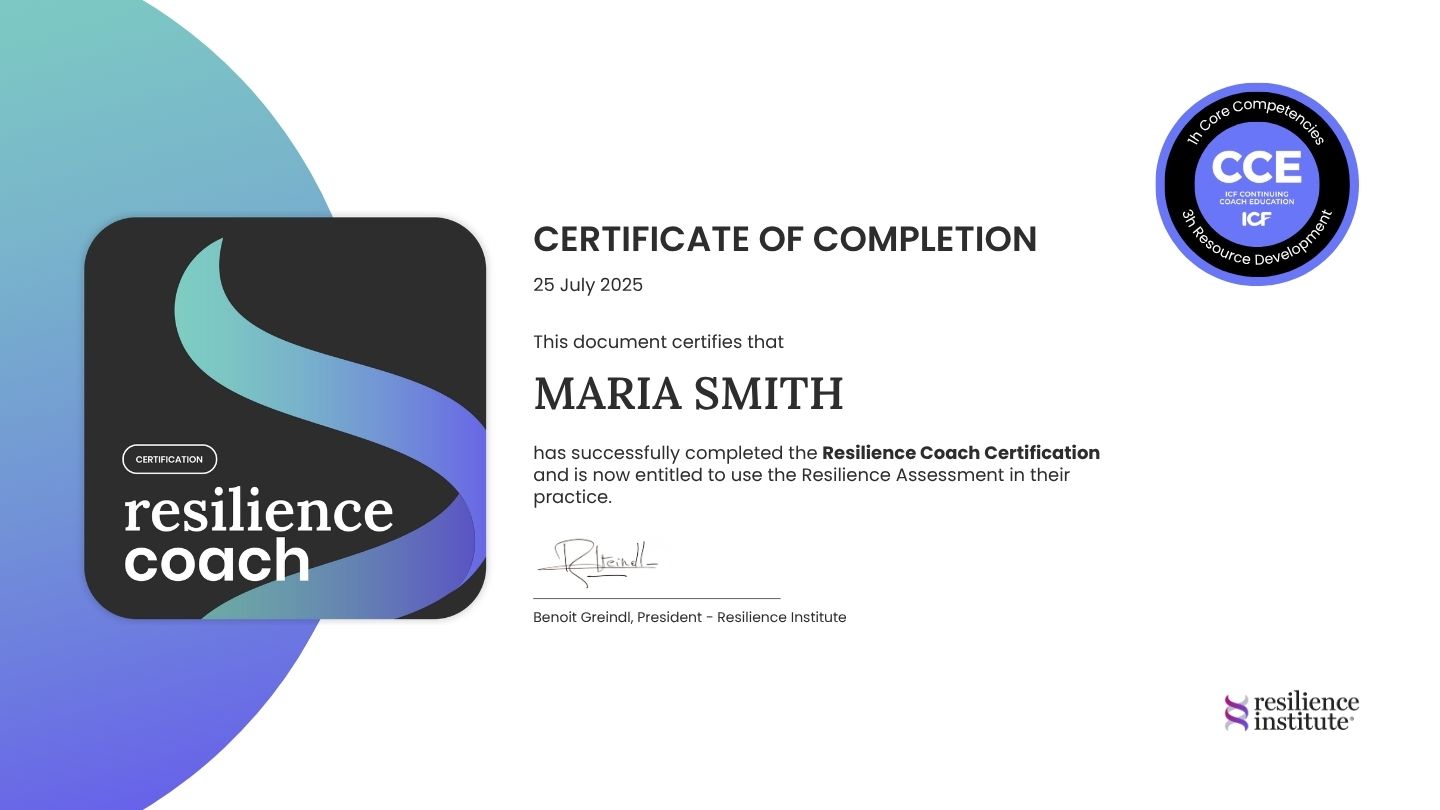
The Best Certifications for Change Managers: Building Capacity for Human Transformation
Change management isn’t just about frameworks, timelines, or stakeholder maps. At its core, it’s about people—their fears, their hopes, and their capacity to evolve. And those responsible for guiding others through change must themselves be prepared, resourced, and resilient.
That’s why certifications matter.
Not for the letters after your name—but for the mindset, method, and mastery they represent. In a world where transformation is constant, great change managers need more than technical skill. They need the ability to steady a room, read emotional currents, and lead with calm in chaos. The right certifications can help build exactly that.
So what are the best certifications for aspiring and current change professionals? Let’s explore.
Prosci Change Management Certification
If you’re looking for foundational, widely recognized training, Prosci remains the gold standard. Based on the ADKAR model (Awareness, Desire, Knowledge, Ability, Reinforcement), Prosci’s method is structured, research-backed, and widely used across sectors.
You’ll learn how to plan for change, engage stakeholders, measure readiness, and embed change sustainably. Prosci’s strength lies in its precision: it gives you tools, templates, and processes you can apply immediately.
Website: https://www.prosci.com
Why it’s essential:
- ADKAR is a common language across global organizations
- Recognized by HR and executive leaders
- Offers a scalable methodology for individuals and teams
Resilience Coach Certification (Resilience Institute)
Change doesn’t land in a vacuum. It lands on people—often stressed, stretched, and fatigued. The Resilience Coach Certification equips you to help individuals and teams build the inner capacity to handle pressure, uncertainty, and complexity.
This certification draws on neuroscience, performance psychology, and behavior change. You’ll explore the Resilience Spiral—an evidence-based framework spanning calm, energy, emotional agility, cognitive clarity, and flow. This training helps change leaders become human enablers, not just process managers. The certification is also approved by the ICF for Continuing Coach Education (CCE), offering 4 CCE hours upon completion.
Website:https://resiliencei.com/certification/
Why it’s essential:
- Helps address the emotional realities of change
- Teaches how to build capacity before burnout hits
- Strong ROI for organizations navigating transformation
Certified Change Management Professional (CCMP)
Offered by the Association of Change Management Professionals (ACMP), this credential aligns with the ACMP’s Standard for Change Management. It’s a globally respected alternative to Prosci, with a broader focus on principles rather than a single methodology.
To qualify, you’ll need formal training plus experience. The CCMP exam tests your understanding of process, leadership, communication, and measurement—all the essentials of structured change.
Website: https://www.acmpglobal.org
Why it’s essential:
- Offers global credibility
- Focuses on practitioner depth and real-world application
- Based on open standards, not proprietary models
Resilience Facilitator Certification (Resilience Institute)
This certification is for those who work at scale—leading workshops, embedding resilience across teams, and equipping others to grow. While the Coach Certification focuses on 1:1 or small-group interventions, the Resilience Facilitator program trains you to teach core resilience skills in classrooms, leadership retreats, or enterprise rollouts.
Website: https://resiliencei.com/certification/
Why it’s essential:
- Ideal for L&D professionals, consultants, or agile coaches
- Adds emotional intelligence and performance science to change work
- Enables large-scale transformation that sticks
Lean Change Agent Certification
Developed by Jason Little, this program is for change-makers who love experimentation. Lean Change Managementtakes an agile approach to change—blending feedback loops, co-creation, and adaptive planning.
Instead of rigid plans, you learn how to run change experiments, validate assumptions, and evolve your strategy as you go. This certification is highly practical, especially in fast-moving or startup environments.
Website: https://leanchange.org
Why it’s essential:
- Agile-compatible, people-first, and iterative
- Encourages experimentation over perfection
- Supports psychological safety during change
Change Management Institute (CMI) Accreditation
The CMI offers a professional pathway for change practitioners—from Foundation through to Master level. Their emphasis is on professionalism, community, and ongoing development. You’ll find great peer support, global perspectives, and a non-proprietary approach to change.
Website: https://www.change-management-institute.com
Why it’s essential:
- Professional recognition and global community
- Flexible for career progression
- Encourages reflective practice, not just tools
ICAgile Certified Professional in Leading with Agility (ICP-LEA)
Change doesn’t always follow a linear path—especially in agile or matrixed organizations. The ICP-LEA certification explores how to lead in complexity, uncertainty, and dynamic environments. It focuses less on rigid models and more on how you show up as a leader.
Website: https://www.icagile.com
Why it’s essential:
- Focuses on mindset, emotional intelligence, and leadership agility
- Recognizes that change starts with how we lead ourselves
- Aligns with future-facing, complexity-informed organizations
Design Thinking / Human-Centered Design Certifications
Offered by institutions like IDEO, LUMA Institute, and Stanford d.school, these programs train change managers to center empathy, co-creation, and iterative prototyping.
Websites:
- IDEO U: https://www.ideou.com
- LUMA Institute: https://www.luma-institute.com
- Stanford d.school: https://dschool.stanford.edu
Why it’s essential:
- Teaches how to involve people in shaping change (not just reacting to it)
- Builds trust and psychological safety
- Translates vision into action through experimentation and feedback
EQ-i 2.0 Emotional Intelligence Certification
This certification allows change professionals to assess and coach emotional intelligence using a validated psychometric tool. It deepens your ability to recognize and navigate the emotional drivers of resistance, engagement, and leadership effectiveness.
Website: https://www.mhs.com
Why it’s essential:
- Enables data-driven conversations around emotion and behavior
- Deepens empathy and social effectiveness in high-stakes environments
- Often used alongside leadership development and coaching
NeuroLeadership Institute – Brain-Based Coaching Certification
Neuroscience-informed change is not a trend—it’s the future. This program teaches the SCARF model (Status, Certainty, Autonomy, Relatedness, Fairness) to help leaders understand the brain’s response to change.
Website: https://neuroleadership.com
Why it’s essential:
- Rooted in neuroscience and cognitive behavior change
- Offers coaching techniques aligned with how the brain learns and adapts
- Elevates credibility in leadership conversations

Choosing the Right Path
So which certification is right for you? It depends.
If you’re building foundational expertise: Start with Prosci or CCMP.
If you’re managing change in complex human systems: Add Resilience Coach or Facilitator.
If you’re leading in uncertain, agile contexts: Lean Change, ICP-LEA, or Design Thinking.
If you’re ready to explore the emotional and neurological dimensions of change: EQ-i or NeuroLeadership Institute will serve you well.
The truth is, great change leaders are never done learning. They gather tools, evolve perspectives, and stay grounded in human insight.
Because at the end of the day, change isn’t a spreadsheet. It’s a story unfolding in real time. And the best change managers know how to read that story—and help rewrite it.
Let your certification be more than a credential. Let it be a catalyst.

Author’s note: At the Resilience Institute, we believe that human sustainability is the future of change leadership. Our certifications are designed not just to inform—but to transform. If you’re ready to lead change from the inside out, let’s talk.

